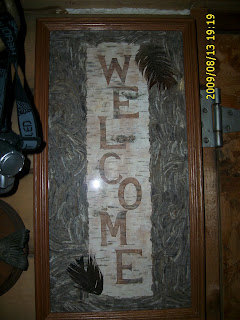COUNTRY AUCTION JARGON
Bidding Number – At most auctions when you arrive you must sign in, giving your name, address, phone number, and nowadays you are often required to present your driver’s license ID card. For the most part, the country auctions I’ve attended have not charged a fee for these bidding numbers. But there are some that do, and now the going rate seems to be $3.00. The bidding number has a “number” on the front side and sometimes lines on the back side where you can list the items that you have won and the amount that you paid for them. Then when you settle up with the auction clerk you can compare your list with theirs and make sure you are in agreement. There are times when a clerk makes a mistake and records an item that you did not buy and there are times when the total amount the clerk gives you is different than what you think you bid up to.
Berry Picker – This term has nothing to do with picking berries. It is meant to describe the group of people that are attending an auction or a gathering of people. The best way for me to describe it is to use it in a sentence. There are so many “berry pickers” here today we surely won’t get any bargains.
Dealer – A dealer at an auction is not generally someone who deals cards at a casino. He or she is someone who buys items at auctions with the sole purpose of reselling them. It could be that they are reselling the items at a flea market, in an antique booth, or on ebay. Nonetheless they don’t even necessarily like the items they purchase at an auction, they buy purposely to resell for a profit. One rule they often follow is to only pay 50% of what they think they can sell an item for. I have seen dealers pay too much for items at auction though, much more than their 50% rule, simply to snub another dealer who was also interested in the same item. That happens often, and sometimes it is entertaining in itself to watch a couple of dealers hash it out in a bidding frenzy, and a person just watching leads me to the next term.
Gawker – A person who, like mentioned above, attends an auction just to watch others bid and never throw a bid himself is a gawker. A gawker may also attend an auction because he is nosey and wants to see what his neighbor is selling. Or she may be there simply to socialize with other gawkers. Rarely does a gawker bid on anything, and they often stand way toward the back of the crowd eating hot beef sandwiches they have purchased from the concession stand brought there to keep the crowd content.
Jackpot – I have mentioned this before but will explain it better here. When an auctioneer is selling items and comes across one that no one wants, not even for a dollar, he has his helpers put it off to the side. As the auction nears an end or the wagon he is on becomes empty, all those items in that pile that no one bid on are lumped together into a jackpot and sold for one price. Another instance that can create a jackpot is when an item brings no bids and instead of it being placed off to the side in a pile, more merchandise is added to it. Eventually someone will bid on the group of items, and often the auctioneer will sell it to the first person that holds their hand up. I’ve reluctantly bought a few jackpots in my earlier auction days. But now I’ve been able to have a little more self-control because I have “enough stuff” already.
Black hats – Name given to a group or large number of Amish men at an auction.
Each auctioneer seems to have their own jargon and I’ve noticed quite a few different lines they used that seemed unique. One auctioneer always ended the bidding on each item by saying, “Pull the pin and shut the gate”. Another fellow still chants when something has been sold and then a lagger throws in a bid too late. “The boat done left.” And he tells folks that buy electrical appliances or tools to, “Plug them in and try them out today, don’t wait til Sunday, church is Sunday”.
OLD FENCE POSTS
Barb wire stretched four strands high
Attached to wooden fence posts,
A rod between each one
They mark the line between us,
Me and you, my neighbor.
On this side I build my home
Till my garden, mow my yard.
On that side you do your thing
The fence posts standing in between
As long as they can still be seen.
Wooden fence posts, split white oak
Leaning one way or the other.
Sawed and chopped and pounded in,
Wire stapled to each one
A work of art… keep us apart.


No comments:
Post a Comment